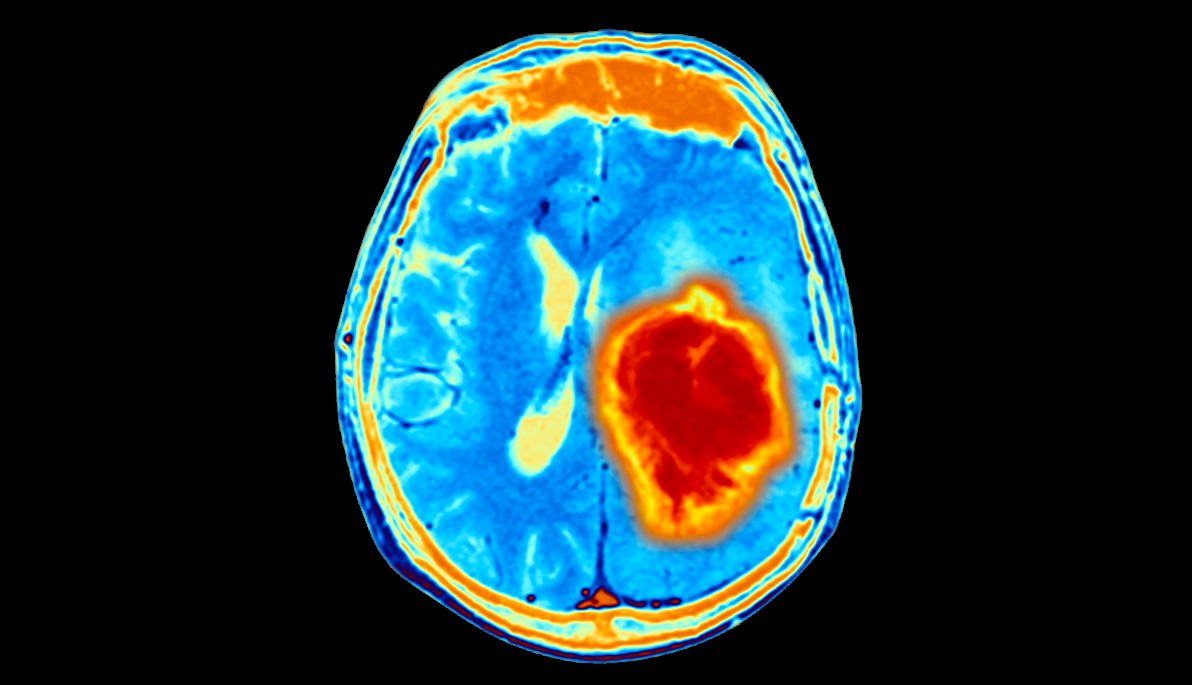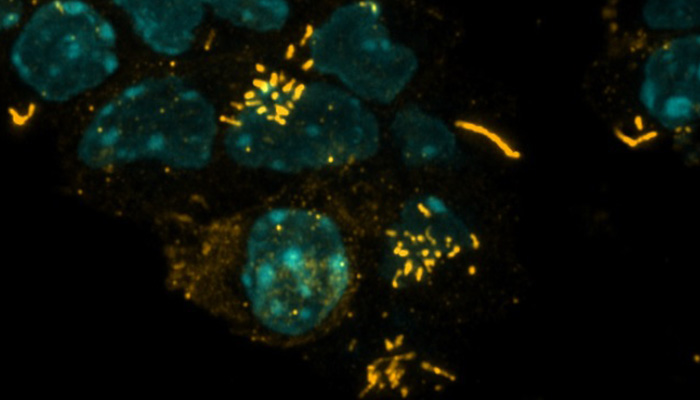
Researching Treatments for Pediatric Brain Cancer
June 2, 2022
This spring, New York Tech researchers, led by Associate Professor of Biomedical Sciences Haotian Zhao, M.D., Ph.D., published scientific research that could bring the medical community one step closer to winning the fight against pediatric brain cancer.
Zhao, along with medical and undergraduate students, as well as colleagues from the College of Osteopathic Medicine (NYITCOM), teamed up with researchers from prestigious institutions, including the National Institutes of Health (NIH), Boston Children’s Hospital, and others, to study the cellular biology behind choroid plexus (CP) carcinomas. These rare but very aggressive brain tumors are responsible for approximately 20 percent of brain tumors in children within the first year of life. The group’s findings, which were published in Cell Death & Differentiation, may also help identify lifesaving therapies to suppress CP tumor growth without damaging the developing brain.
CP tissue in the brain serves multiple critical functions, such as preventing toxic molecules and drugs from entering the brain, secreting cerebrospinal fluid (a vital liquid that nourishes brain cells), and removing metabolic waste from the brain. CP carcinoma and CP papilloma are two types of brain tumors known to affect CP tissue. While CP papilloma is typically a benign, non-cancerous tumor, CP carcinoma is a rare cancerous (malignant) tumor that occurs primarily in children. These deadly tumors form within the CP tissue that secretes cerebrospinal fluid and tend to respond poorly to existing cancer treatments, which makes them highly lethal.
The researchers investigated whether the development of CP tumors is impacted by defects in cilia, microscopic hair-like structures found in large numbers on the surface of cells throughout the body. The coordinated beating of multiple cilia (multicilia) helps to direct the flow of fluid in certain tissues, including adult brain ventricles. Defects in the formation or movement of motile cilia can cause fluid accumulation in the brain.

CP tumors (teal) receive a treatment to restore multicilia (yellow), which was shown to decrease tumor growth.
Healthy cells within CP tissue have multiple cilia that contribute to the sensing of the brain environment. However, most human CP tumor cells—especially CP carcinomas—are monociliated (have only one cilium) and display changes in the chromosomes that code for healthy cilia development. Given this, the researchers posited that changes in cilia development may play a key role in the formation of CP tumors, and those therapies encouraging the healthy development of multicilia could potentially halt the growth of deadly CP tumors.
To test the theory, the Zhao lab developed multiple mouse models of CP tumors caused by genetic defects commonly found in human diseases, including those impacting cilia development. In instances where gene expression for multicilia development was activated, CP tumor cell growth was inhibited. The researchers then administered a treatment to restore multicilia, which decreased tumor growth. Their findings suggest that therapeutic strategies aimed at restoring healthy cilia development may suppress CP tumor growth.
Members of the Zhao Lab involved in this project include NYITCOM Senior Research Associates Ping Cao and Yuan Huang and the following New York Tech students and alumni:
NYITCOM students:
- Tamanna Sarowar
- Navleen Singh
- James Virga
- Tasneem Zahran
Life Sciences students:
- Maheen Umer
- Mariam Zahran
Alumni (students at the time of their involvement):
- Ahmed Abdeltawab (B.S. ’20)
- Uzayr Arif (D.O. ’21)
- Brightlyn Kwa (B.S. ’22)
- Thomas Page (D.O. ’22)
This research was partially funded by NIH grants previously secured by Zhao, including NIH Institutional Development Awards (Award no. 5P20GM103548 and 5P20GM103620) and NIH R01 CA220551. The content is solely the responsibility of the authors and does not necessarily represent the official views of the NIH.
More Features

An Alumnus’ Commitment to the Environment
As an energy management graduate from New York Tech’s Vancouver campus, Jasdeep Gulati (M.S. ’22) is highly invested in educating people about environmental and climate sustainability.

Vancouver Faculty Win University-Sponsored Research Awards in New Program
The new Global Impact Research Grant (GIRG) program has been developed to keep Vancouver-based faculty connected to faculty and research projects being conducted on the university’s New York campuses.

Studying Climate Change One Degree at a Time
Junhua Qu (M.S. ’24) began her collegiate journey in Beijing. But, her interest in climate change took her to New York Tech’s Vancouver campus to study energy management.
